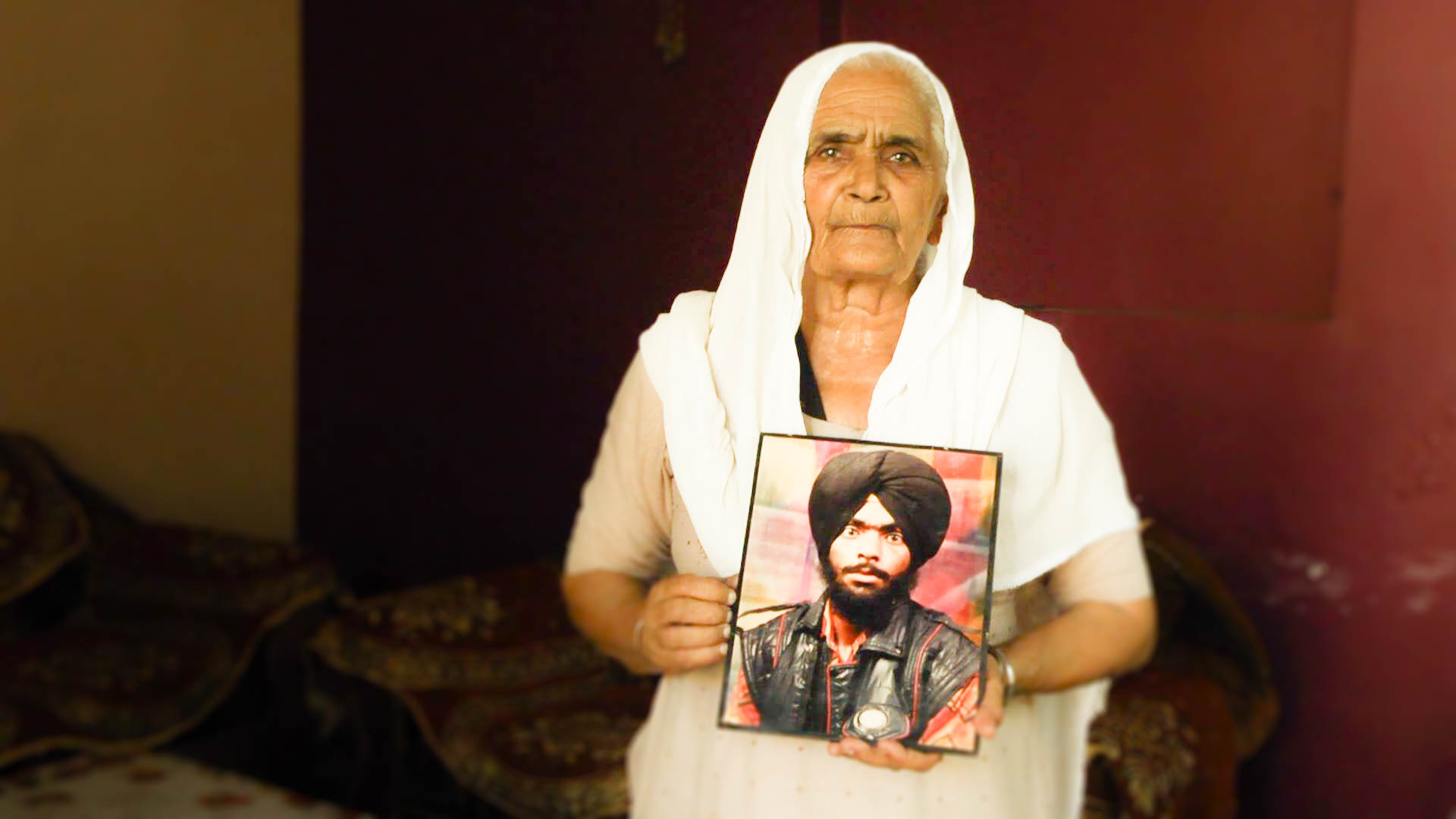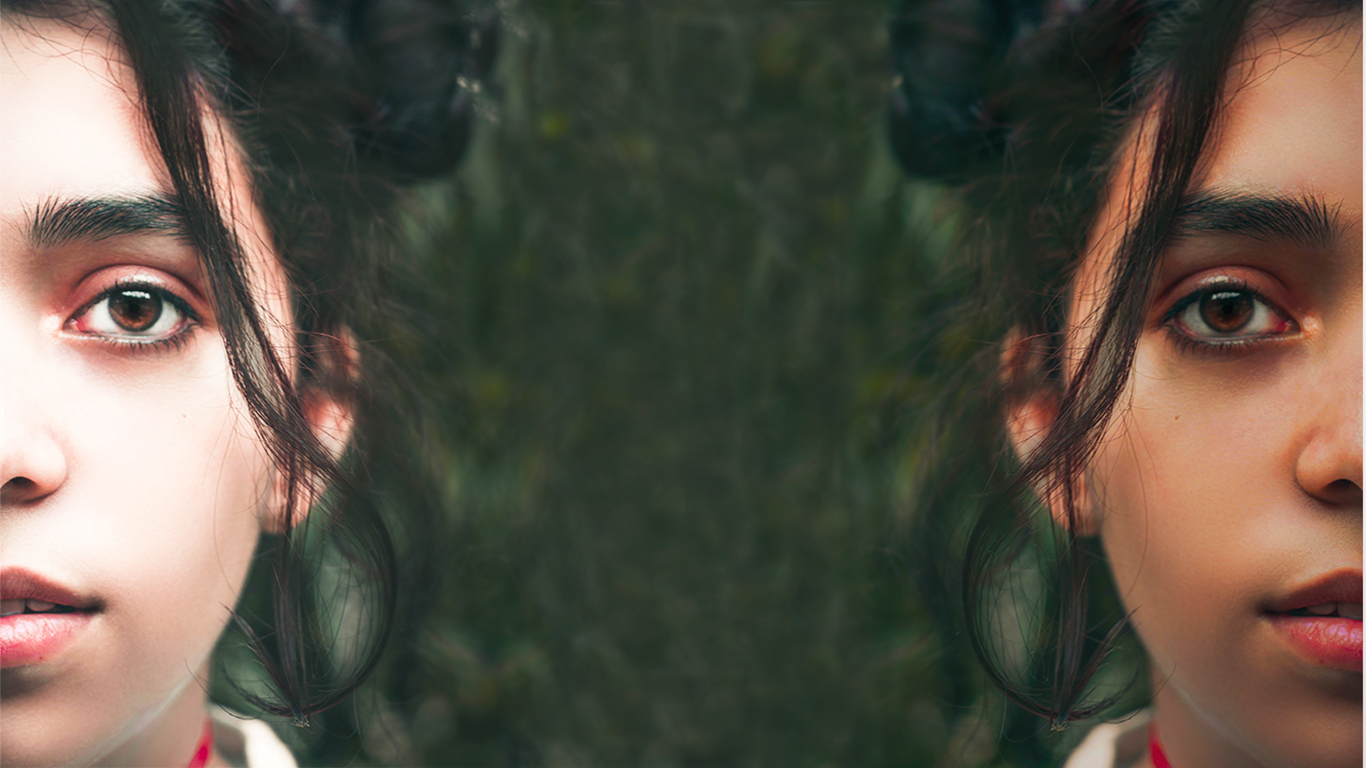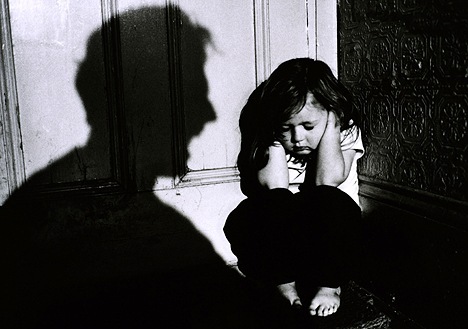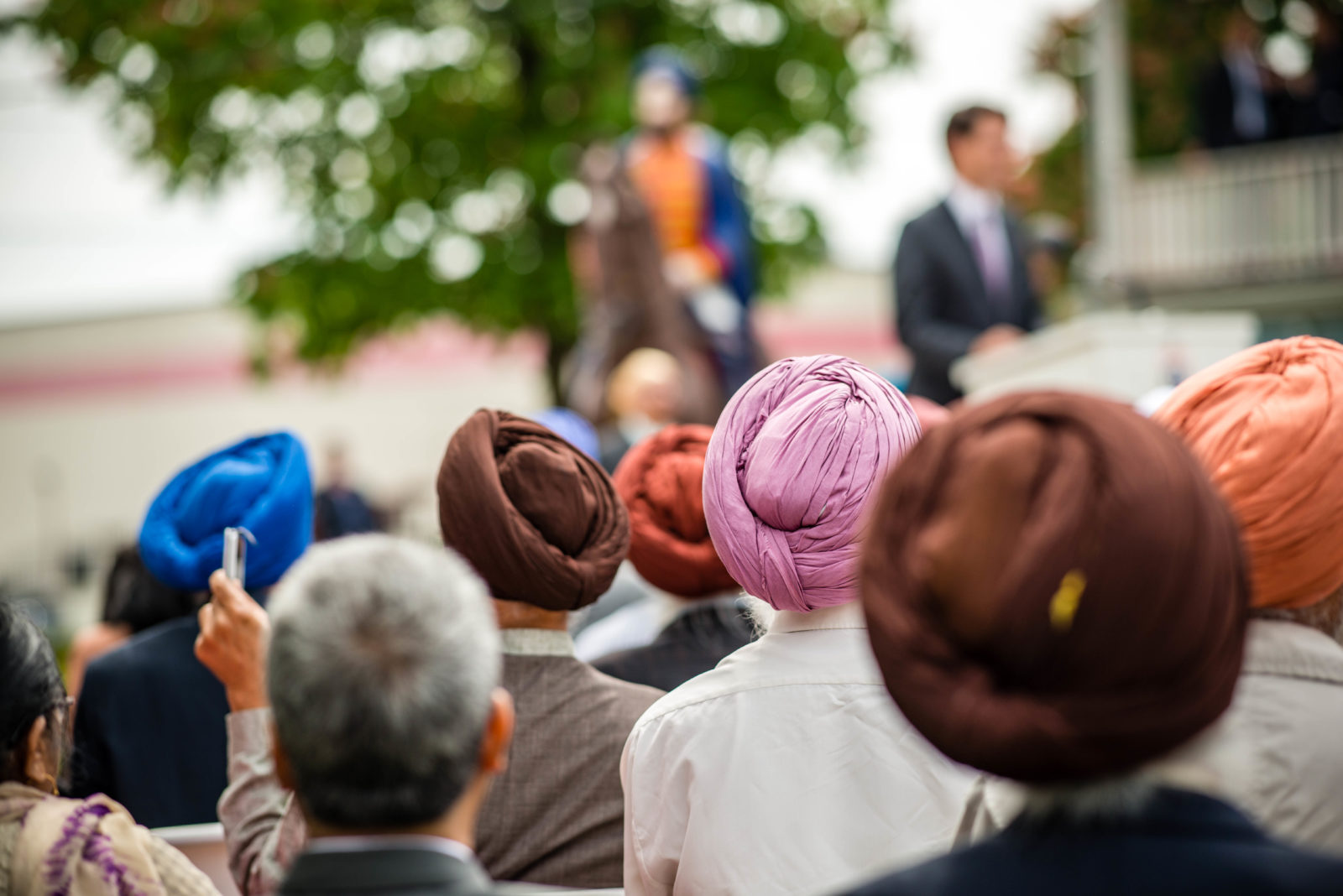Here in Punjab, in villages that don’t exist on Google Maps, my camera becomes a witness to loss. It’s the kind of loss that amplifies as time passes. Every time a cop is acquitted, every time the government calls the survivors “liars,” and human rights activists “terrorists”, the loss grows wider. The wider it grows the darker it gets. Sometimes, I’m afraid this loss might swallow the earth. I feel an urgency to contain it, to push it back, to find a way to heal.
A woman holds the photograph of her husband, who was disappeared 26 years ago. The woman has aged and now looks like the mother of the man whose photo she’s holding. I see what’s been stolen by the state – time, youth, beauty, intimacy, the promise of growing old together. The disappearance of the body is not a singular event, it’s a daily dismemberment of consciousness, of memory, of relationships.
Another woman tells the story of her son who was taken into custody, tortured and then shot by the police. A couple months later, the police abducted the woman’s husband and younger son. To this day she doesn’t know what happened to them. I ask her, what kind of justice does she want? She thinks for a moment and then asks me, “In America, things like this don’t happen right? In America, you have justice and good police that protects people? I want to send my grandson there, so he can be safe.” I am taken aback by her question. I want to tell her that in America we also have police brutality. That North Carolina is in a state of emergency because another black man was shot. That the bodies of black men are just as easily destroyed as the bodies of Sikh men at hands of the police. But I don’t know how to really tell her these things. So I tell her, “Well, we have our own problems there.”
In moments like this, I wrestle with hope. The loss grows wider and darker and it starts gnawing at my heart.
And, then out of nowhere it rains.
It pours only for a few minutes. The smell of humid hot earth fills my pores. I notice a baby spider is spinning a web around my tripod and camera. It’s so tiny, yet so fast. I take a piece of paper and break away the strand that’s connecting it to my equipment. But a few moments later, it comes back and continues to spin. I try again and it comes back again. It just won’t give up. It spins its web wholeheartedly, with faith and courage.
At that moment, the woman starts talking about her sons. Her eyes light up as she is transported to the past, remembering them in vivid details. I realize the state can disappear their body, but it can never steal their stories. Maybe that’s the only antidote to loss.
There’s no way to know what’s at the end of this fight, but maybe like the spider, our purpose is to wholeheartedly focus on the task at hand– to keep spinning one strand at a time for the web of human dignity and social justice.
by Sati Kaur
To learn about human right violations and police brutality in Punjab, or to support social justice work in Punajb, check out Ensaaf, a nonprofit organization working to end impunity and achieve justice for mass state crimes in India.
The photo above is from a video by Ensaaf where a mother recalls her son’s last meal just before Punjab Police abducted him: “He loved okra, so he ate one or two rotis with okra, and left.”
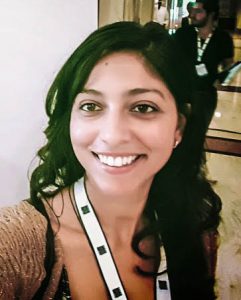 U.S Army veteran, Satinder Kaur is an award-winning writer, director and producer. At the moment, Kaur is spearheading the video advocacy efforts of the largest human rights documentation initiative in India led by Ensaaf, a human rights organization. Among notable accolades for her most recent film The Last Killing are: the Amnesty International Award for Best Human Rights Short; New Filmmakers Los Angeles Award for Best Documentary Short; Best Short Documentary Award at the Sikh International Film Festival; Creative Media Award at the Sikhlens Art and Film Festival. She was recently selected as a fellow of the Writer’s Guild Foundation’s year-long Veterans Writing Project, and has also collaborated with LACMA on the Veterans Make Movies workshop series. After attaining her BA in Journalism/Communications from University of Washington, Kaur went on to complete her MFA in film production at the University of Southern California, School of Cinematic Arts.
U.S Army veteran, Satinder Kaur is an award-winning writer, director and producer. At the moment, Kaur is spearheading the video advocacy efforts of the largest human rights documentation initiative in India led by Ensaaf, a human rights organization. Among notable accolades for her most recent film The Last Killing are: the Amnesty International Award for Best Human Rights Short; New Filmmakers Los Angeles Award for Best Documentary Short; Best Short Documentary Award at the Sikh International Film Festival; Creative Media Award at the Sikhlens Art and Film Festival. She was recently selected as a fellow of the Writer’s Guild Foundation’s year-long Veterans Writing Project, and has also collaborated with LACMA on the Veterans Make Movies workshop series. After attaining her BA in Journalism/Communications from University of Washington, Kaur went on to complete her MFA in film production at the University of Southern California, School of Cinematic Arts.

